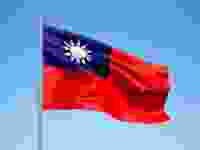
Why Taiwan's success has become a problem for WHO
Taiwan first notified the WHO of Covid-19 on 31 December 2019, but regrettably the WHO chose to respond by publicly dismissing these concerns. Instead the WHO has chosen to accept, with no scrutiny or criticism, the word of the Chinese government, argues Martin Vickers MP
As the coronavirus gripped the world, closing all but essential services, separating citizens from their loved ones and changing our way of life in a way few would have previously imagined, one shining light defied the new world order. To date, Taiwan has contained the outbreak to just 428 confirmed cases and six deaths. As such, the Taiwanese people are largely able to carry on with their lives as normal. This is even more amazing if you consider the country's links, through trade, economic activity and geography, with China.
Learning from the SARS outbreak in 2003, Taiwan knew that swift action was the key. Long before COVID-19 was a matter of public consciousness in the western world, Taiwan was putting in place measures to protect itself and its citizens. The screening of Chinese citizens entering the country began immediately followed by a complete border closure to anyone who had been in China as the situation developed. For its citizens, strict quarantine measures were introduced, production and distribution of PPE was ramped up and every effort to trace the flow of contact was made.
Taiwan benefits from a world-leading healthcare system. Just as in the United Kingdom, coverage is universal, but rather than being entirely taxpayer funded, the system revolves around a national health insurance plan, run by the government, covering everybody. The system has endured for 25 years and has public support over 80 percent. About 1 percent of its funding is spent on administration, compared to the NHS which spends £8 billion of its £100 billion budget. As the earliest signs of coronavirus began to emerge, officials at Taiwan's National Health Command Centre began taking action to respond to the potential threat.
Sadly, the efforts being made were not fully appreciated at the time. Taiwan first notified the World Health Organisation (WHO) of the virus on 31 December 2019, specifically in relation to its concern regarding for potential for human-to-human transmission. But, regrettably, Taiwan are not members of the WHO and they chose to respond by publicly dismissing these concerns. Instead the WHO has chosen to accept, with no scrutiny or criticism, the word of the Chinese government.
Despite this, Taiwan is now outperforming the rest of the world and this will only advantage them more in the long run. It has been estimated that the economic cost of a one-month lockdown is a 3 percent contraction of full year GDP. Whilst the rest of the world is going to have to take tough economic decisions to bring their finances back on track after the pandemic passes, Taiwan will find itself in a very fortunate position.
This small but determined country has now refocussed its efforts to helping the rest of the world deal with the crisis. They are currently distributing 10 million facemasks globally, with a delivery arriving in London last week for use by the brave medical staff providing frontline care through the National Health Service.
Clearly, the middle of a global pandemic is not an appropriate time for an inquiry. However, once the worst is over and the world has returned to something resembling normality it will be imperative that answers are given to some of the burning questions that, arguably, should have been asked a long time ago. It is disappointing that it took such an extreme event to raise these questions but now they are being asked, it is essential that the opportunity to resolve them is not missed.
Taiwan is now a model. Economists around the world are studying the country's handling of the greatest pandemic of a generation in order to determine how to avoid similar events happening in future. The WHO must acknowledge the legitimate and independent place of Taiwan in dealing with international health matters.













